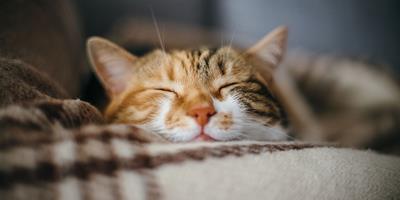
Cats love cosying up and purring on your lap, especially when you lavish them with attention. But they’re also known for exploring, sometimes roaming quite far from home.
So, to protect your cats as they explore their exciting surroundings, having them vaccinated should be one of your first considerations.
Here are the answers to some common questions about getting cats vaccinated.
Why do cats need vaccinating?
Cats are vulnerable to infectious diseases that can harm their health and welfare. Some of these are incurable or have limited treatment options.
Whether they’re an indoor or outdoor cat, vaccinations can protect them from several of the most serious feline infectious diseases, helping them to live a healthy and happy life.
By vaccinating your pet, you will also help stop the spread of these diseases and keep other pets and animals safe too.
If you want to go away on holiday and leave your cat at a cattery, then they are likely to insist your cat is vaccinated before they allow it to stay there. The same goes for getting your cat insured. Most providers will require your pet’s vaccinations to be up to date in order to provide cover.
When does my cat need vaccinating?
According to the RSPCA, kittens should have their first set of vaccinations at nine weeks old and then a second set at three months old.
After this, kittens and cats usually need 'booster' vaccinations every twelve months.
Until your kitten is fully vaccinated, you should keep it inside.
Which vaccinations does my cat need?
There are several ‘core’ vaccines that all cats need to protect them from severe or life-threatening diseases. Cats are commonly vaccinated against:
- Feline infectious enteritis: a potentially fatal disease caused when cats become infected with feline parvovirus, also known as the feline panleukopenia virus. Unvaccinated kittens are most at risk.
- Feline influenza, or cat flu: while this is not usually serious in adult cats, it can be fatal in kittens, and in adult cats with other serious underlying illnesses.
- Feline leukaemia virus: an incurable viral infection that eventually produces a fatal illness in cats.
Your cat may also need other vaccinations, depending on its individual circumstances. So, speak to your vet to find out which vaccines your cat needs.
How much do vaccinations cost?
Vaccination prices vary and will depend on which vaccinations your cat is given. But in 2019, as part of research into the cost of having a cat, MoneySuperMarket found that the first lot of vaccinations at nine weeks and three months old cost an average of £63. Then, booster vaccines against cat flu, feline infections and feline leukaemia cost an average of £44.
What if I have a rescue cat?
If you got your cat from a charity or animal shelter, then you may not know if they’ve had the right vaccinations and are up to date with their boosters.
While animals in shelters are often vaccinated before you take them home, always check with the charity and ask for the vaccination documentation. If they don’t have an up to date vaccination card, then the Royal Veterinary College recommends re-starting with a full vaccination schedule.
Will there be any side effects from vaccination?
Vaccinations can sometimes cause side effects, but these are rare, usually mild and pass within a few days, according to vet charity PDSA. If your cat does suffer from side effects, then you should contact your vet.
Vets stress that the benefits of vaccination continue to outweigh the small risk of side effects.


